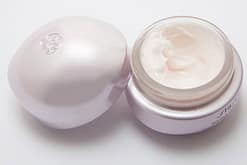Understanding Skin Changes
As you journey through life, your skin experiences various transformations, with its appearance and texture being influenced by multiple factors including age and hydration levels. Understanding these skin changes, particularly during significant life stages such as menopause, is crucial for maintaining your skin’s health and vibrancy.
Impact of Aging on Skin
Aging is an inevitable process that affects every part of your body, including your skin. As you age, your skin’s fluidity (R6) increases, while the elastic recovery ratio (R7) decreases, leading to the development of wrinkles and a less supple texture (PubMed). Additionally, the wrinkle parameter (SEw) also increases with age, further accentuating the visible signs of aging.
| Age Group | Fluidity (R6) | Elastic Recovery (R7) | Wrinkle Parameter (SEw) |
|---|---|---|---|
| Young Adults | Low | High | Low |
| Middle-aged Adults | Moderate | Moderate | Moderate |
| Older Adults | High | Low | High |
The elderly often exhibit less elastic skin with more pronounced wrinkles. Skin hysteresis, which is the delay in your skin’s ability to return to its original state after being stretched, is closely related to the degree of these wrinkles. This is why you may notice that the skin does not “bounce back” as it once did (PubMed).
For women over 40, especially those going through menopause, these skin changes during menopause can be more noticeable due to hormonal shifts. These hormonal skin changes can affect skin visco-elasticity, hydration levels, and the aging process, all contributing to the formation of wrinkles and a change in skin texture.
Effects of Dehydration on Skin
Dehydration can have a significant impact on your skin’s appearance and health. Dehydrated skin is not just a surface issue; it’s a symptom of dehydration throughout your body, resulting in skin that may feel rough, scaly, or itchy. This condition arises from not consuming enough water to meet your body’s needs (Medical News Today).
Contrary to dry skin, which is characterized by a lack of natural oils, dehydrated skin is associated with insufficient water intake. While dry skin may be a result of various skin conditions or frequent washing, dehydrated skin is specifically due to a lack of water. Symptoms of dehydration in the skin include more noticeable fine lines, a dull complexion, and less elasticity. Additional symptoms may include feeling thirsty, tired, and experiencing dark urine (Medical News Today).
Dehydrated skin can lead to a compromised skin barrier, resulting in discomfort and dullness. It underscores the importance of proper hydration for maintaining healthy and radiant skin. A simple pinch test—pinching the cheek and observing how quickly the skin returns to its original state—can help determine if your skin is dehydrated. Slow skin bounce back and visible wrinkles during this test may indicate a need for improved hydration.
To support your skin’s hydration, remember that your body requires a continuous supply of water. Drinking sufficient water each day is the most effective treatment for mild cases of dehydration and can significantly improve your skin’s hydration levels (Medical News Today).
By acknowledging and addressing these skin changes and hydration needs, you can better manage the evolving landscape of your skin. Whether you are experiencing skin changes during perimenopause, skin changes after childbirth, or changes related to skin and nutrition, ensuring adequate hydration should be a cornerstone of your skincare routine.
Skin Hydration Importance
Role of Skin Hydration
Hydration plays a pivotal role in maintaining the suppleness and vitality of your skin. Well-hydrated skin appears more plump, resilient, and youthful. Studies have shown that skin hydration significantly lowers the hysteresis (a measure of the ability of skin to change shape and return), the visibility of wrinkles, and the depth of wrinkle furrows, which are often associated with aging. Keeping your skin adequately hydrated can help combat the visible signs of aging and maintain its natural beauty.
In addition to aesthetic benefits, proper skin hydration ensures that your skin functions efficiently as a barrier, protecting against environmental aggressors and minimizing the risk of skin disorders. It can also enhance the skin’s natural healing processes, reduce discomfort, and prevent the dullness that often accompanies dehydrated skin (Medical Cosmetic Clinic).
Factors Affecting Skin Hydration
Several factors can influence your skin’s hydration levels. Recognizing these can help you take proactive steps to maintain the moisture balance in your skin:
- Physiological Changes: As you experience hormonal skin changes, such as those during menopause, perimenopause, pregnancy, puberty, menstruation, or after childbirth, your skin’s ability to retain moisture can be impacted.
- Environmental Stressors: Exposure to pollutants, harsh weather conditions, and UV radiation can deplete your skin’s moisture levels. Protecting your skin from these elements is crucial to prevent dehydration.
- Lifestyle Habits: Your daily habits, including your diet, water intake, and skincare routine, play an important role in skin hydration. Consuming a balanced diet rich in antioxidants and drinking plenty of water are fundamental for maintaining hydrated skin.
- Skin Care Products: Using skincare products that are not suited to your skin type or contain harsh ingredients can strip away natural oils, leading to dryness. It’s essential to choose products that support your skin’s hydration needs.
- Health Conditions and Medications: Certain health issues and medications can affect skin hydration. It’s advisable to consult with a healthcare professional if you notice persistent skin dryness that doesn’t improve with lifestyle adjustments.
A simple pinch test can help determine if your skin is dehydrated – observing wrinkles and slow skin bounce back after pinching the cheek may indicate a need for immediate hydration. Dehydrated skin can often be improved with lifestyle adjustments and topical hydration, while dry skin necessitates long-term moisturization and nourishment for a balanced and healthy skin barrier.
Remember, consistency is key when treating dehydrated skin. It may take time for your skin to regain optimal hydration levels, requiring patience and diligence with your skincare routines. If concerns persist or worsen, consulting a doctor or dermatologist is recommended. For further guidance on managing skin changes and maintaining hydration, explore our articles on skin changes and nutrition and skin changes and stress.
Managing Skin Changes
As you journey through different stages of life, such as menopause, your skin inevitably undergoes various changes. Understanding and managing these skin changes, particularly through proper hydration, is essential for maintaining your skin’s health and vitality.
Hydration Techniques
Hydrating your skin is more than just applying creams and lotions; it’s about adopting a comprehensive routine that ensures your skin retains its moisture. Here are some effective techniques to boost skin hydration:
- Enhance Your Skincare Routine: Incorporate products specifically designed for deep hydration, such as hyaluronic acid serums or creams containing glycerin. These ingredients help attract and retain moisture in the skin.
- Drink Plenty of Water: Increasing your water intake can have a significant impact on skin hydration. Aim to drink at least eight glasses of water a day to help maintain the skin’s moisture balance (PubMed Central).
- Use a Humidifier: A humidifier can add moisture to the air, especially in dry climates or during winter months, helping to prevent your skin from becoming dehydrated.
- Facial Masks and Treatments: Regular use of hydrating masks and treatments can provide an extra hydration boost to your skin, targeting areas that may require more attention.
- Protect Your Skin Barrier: Avoid harsh skincare products that can strip your skin of its natural oils. Instead, look for gentle, nourishing products that support the skin barrier.
Lifestyle Adjustments
The condition of your skin reflects your overall well-being, which means lifestyle adjustments can play a pivotal role in managing skin changes. Consider the following adjustments to help nourish your skin from within:
- Balanced Diet: Incorporate foods rich in omega-3 fatty acids, vitamins, and antioxidants to help your skin stay hydrated and resilient. Don’t forget to consider skin changes and nutrition when planning your meals.
- Regular Exercise: Physical activity can improve circulation, which helps to keep your skin healthy and vibrant.
- Adequate Sleep: Aim for 7-9 hours of quality sleep per night to allow your skin to repair and regenerate.
- Stress Management: Chronic stress can impact your skin’s ability to retain moisture. Engage in stress-reducing activities such as yoga, meditation, or deep-breathing exercises.
- Avoid Smoking and Excessive Alcohol: These habits can dehydrate your skin and accelerate the aging process.
By incorporating these hydration techniques and lifestyle adjustments into your daily routine, you can effectively manage the skin changes associated with different life stages, including perimenopause, pregnancy, and postpartum. Remember, hydrated skin is healthy skin, and taking these proactive steps will aid in keeping your skin supple, smooth, and radiant.
Environmental Factors
Your skin is your largest organ, and it’s constantly exposed to various environmental factors that can influence its health and appearance. Understanding how these factors affect your skin can help you take proactive steps to maintain its hydration and manage the visible skin changes during menopause and beyond.
Pollution and Skin Health
Pollution is a significant environmental stressor that can lead to a variety of skin concerns, including dehydration. Urban environments with high levels of pollution can increase inflammation, oxidative stress, and accelerate the aging process of your skin. Pollutants compromise the skin barrier function, reducing your skin’s ability to retain moisture and protect against irritants.
Here are some ways you can protect your skin from pollution:
- Regularly cleanse your skin to remove pollutants.
- Use products with antioxidants that can neutralize free radicals.
- Apply a barrier-strengthening moisturizer to help maintain hydration.
Sun Exposure and Skin Aging
Sun exposure is another critical factor that contributes to skin aging. UV radiation and environmental pollutants lead to free radical damage, which can have compounding effects on your skin’s aging process. This oxidative stress results in inflammation, collagen breakdown, wrinkling, and hyperpigmentation. Climate change may exacerbate these effects by increasing UV radiation levels and air pollution.
To mitigate the effects of sun exposure, consider the following:
- Wear broad-spectrum sunscreen to protect against UVA and UVB rays.
- Incorporate antioxidants into your skincare routine, such as vitamin C serums.
- Seek shade during peak sun hours and wear protective clothing.
Understanding the impact of environmental factors like pollution and sun exposure can guide you in taking care of your skin properly. By adopting protective measures and making informed choices about your skincare, you can help maintain your skin’s hydration and overall health during menopause and other hormonal skin changes. Remember, your skin’s requirements can evolve with age and environmental conditions, so be sure to re-evaluate your skincare routine regularly to address skin changes and hydration effectively.


